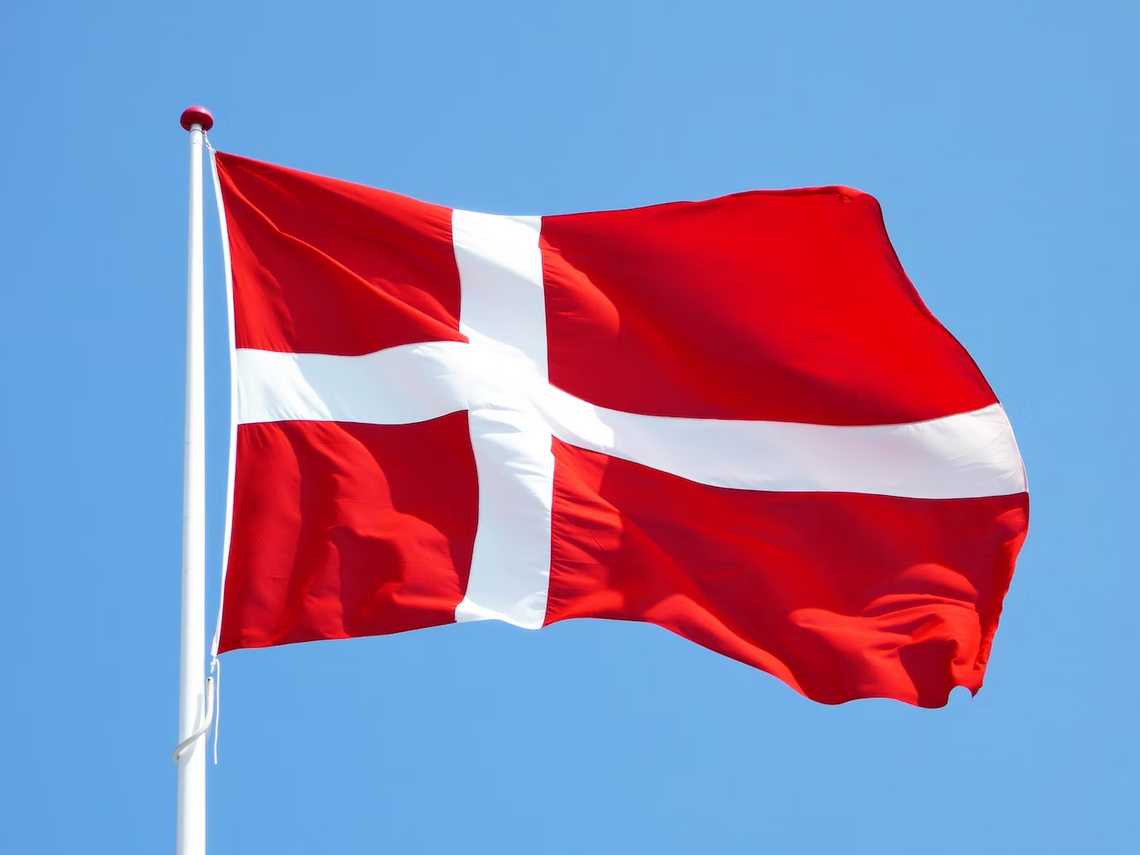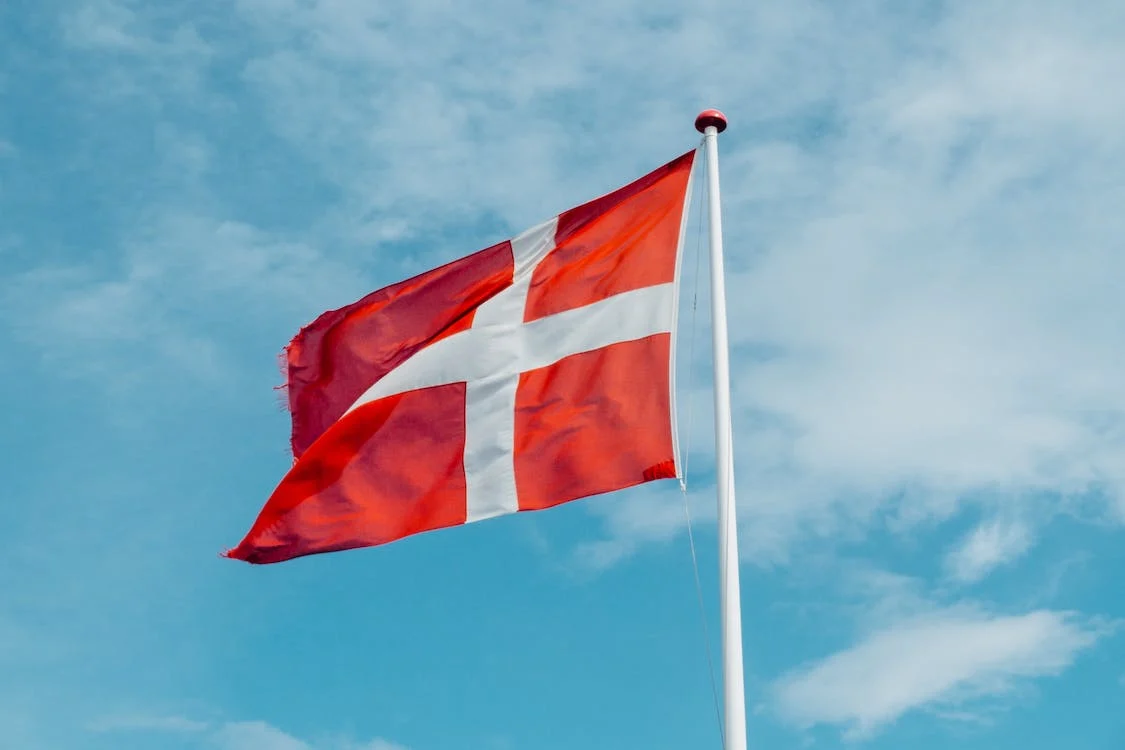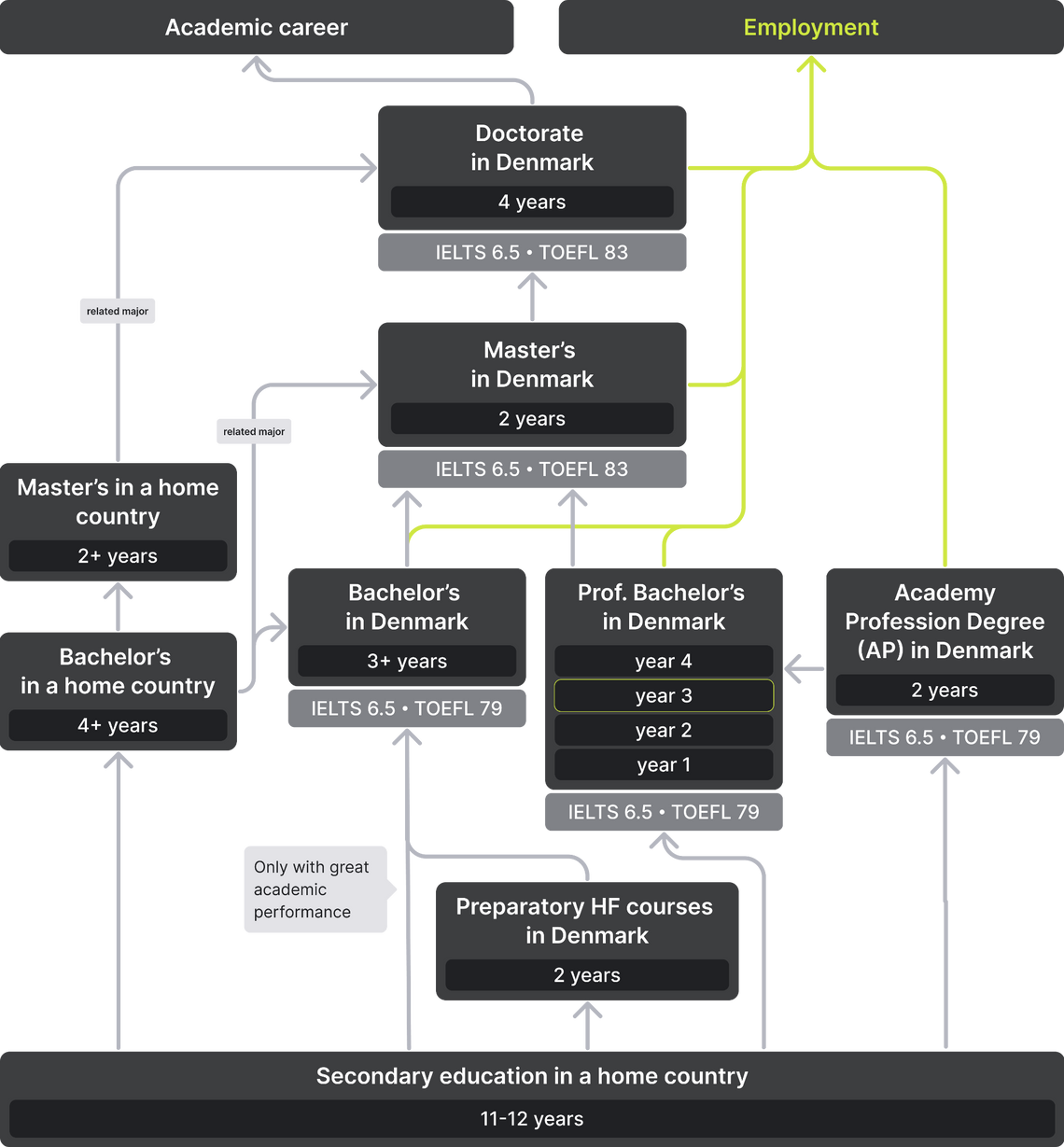Apply to a foreign university with confidence
- Properly fulfilled documents
- Perfect motivation letter
- Support from a personal mentor
- Offers from several universities
To enroll at a Danish university, you need a high school diploma, language certificates in Danish or English, and a convincing motivation letter. Despite the fact that secondary education in Denmark lasts 12 years, some universities accept applicants who have finished the 11th grade. In this case, you need to showcase a transcript without C’s and an overall GPA of 4.5 out of 5.
Free consultation



To enroll at a Danish university, you need a high school diploma, language certificates in Danish or English, and a convincing motivation letter. Despite the fact that secondary education in Denmark lasts 12 years, some universities accept applicants who have finished the 11th grade. In this case, you need to showcase a transcript without C’s and an overall GPA of 4.5 out of 5.
Continue reading for more information on the requirements, exams, and deadlines at Danish universities.
We also have a separate article on the higher education system in Denmark.
| Program | Age | Duration | Min. cost per year | Avg. cost per year | Min. language level |
|---|---|---|---|---|---|
| University Preparation | 16+ | 2 years | 151 USD | 12,105 USD | B1 |
| Bachelor's | 17+ | 3-5 years | 6,809 USD | 18,158 USD | B2 |
| Master's | 20+ | 1-2 years | 9,040 USD | 18,080 USD | C1 |
| MBA | 20+ | 1-2 years | 22,697 USD | 26,480 USD | C1 |
| PhD | 20+ | 3-4 years | Free | 7,566 USD | C1 |
| Expense | Average cost | |
|---|---|---|
| Registration fee | 113 USD | |
| Visa | 286 USD | |
| Danish language exam | 130 USD | |
| Accommodation | 339 USD/month | 991 USD/month |
| Utilities | 197 USD/month | |
| Internet | 36 USD | |
| Food | 257 USD/month | |
| Public transport | 73 USD/month | |


There are only 8 universities in Denmark, but 5 of them are annually included in QS’ top 400 best universities in the world. What should you pay attention to when choosing a Danish university?
To choose a university suitable for your specialty, refer to subject rankings. Not all universities in Denmark will be equally developed in a certain area.
For example, the University of Copenhagen ranks 8th in the world in veterinary medicine, but only 63rd in the humanities[1]. Aarhus University is the best in Denmark if you want to study psychology[2].
Education in Denmark can hardly be called cheap. The cost of bachelor’s programs here vary from 6,809 USD to 18,158 USD per year. The amount may differ even within the same university, depending on the program. As a rule, the most expensive specialties are in the fields of medicine, law, and business.
Choose a university and program based on your budget. Also consider the cost of living in the country. To live comfortably in Denmark, you need an average of 1,059 USD per month.
Studying and living in Denmark is expensive, but there are several scholarship programs available in the country: grants from the state and independent organizations, as well as tuition discounts from universities. Most of the options are available to bachelor’s and PhD students.
Scholarship amounts vary. Full coverage of tuition and other expenses is extremely rare. Most often, students can count on a discount or lump sum payments. Available scholarship programs can be found on the Ministry of Education website or the Scholarships section on a university website.
If you do not want to learn Danish or are not confident in your proficiency, pay special attention to English-language programs.
In Denmark, there are more than 500 programs in English. Of these, 64 are bachelor’s and 380 are master's programs. You can find a full list of programs on the StudyinDenmark website. The ratio of programs in Danish and English depends on the university — for example, the University of Copenhagen only offers Danish-language bachelor's programs.
Only students with a perfect transcript can enter Danish universities after completing the 11th grade. In other cases, you will need to pursue a year of bachelor’s study in your home country or take supplementary courses.
The decision to recognize your diploma is independently made by each university. While one might accept you, others will direct you to take supplementary courses. Therefore, contact the admissions office of your chosen university and check in advance whether or not your diploma will be accepted.
Here, your task is to listen to yourself and understand what else you find important when it comes to studying. Do you want to live in a quiet university town? Should your dream university have a modern laboratory and professors with the same academic interests as yours? Or, do you hate the cold and would rather study in southern Denmark, where the climate is milder?
Generally, it is a good idea to make your own list of selection criteria.
Read more about Danish universities in our separate article.
UniPage employs professionals with extensive experience in admission to Danish universities, including the University of Copenhagen, Aarhus, and Danish Technical University. Our specialists will help you:
Items 1-6 of 102
Advanced search
While secondary education in Denmark lasts 12 years, it is possible to enter a university after the 11th grade with good academic performance[3]. Your high school GPA must not be lower than a 4.5 out of 5, and for each individual subject you must have at least a "B" — but even this does not guarantee that your diploma will be recognized. In the end, the university makes the final decision.
If the chosen university does not accept your diploma, there are other ways to enroll:
The main document for admission to a Danish university is a diploma of previous education with a grade transcript. If you took additional courses or studied at home before admission, you must provide course certificates, HF exam results, or other forms of proof from the university in your home country.
In addition, you need to confirm your level of proficiency in English or Danish. For English-language programs, IELTS 6.5 / TOEFL 83 scores are suitable. To study in Danish — Danskprøve 2 exam results are required.
Additional requirements:
Detailed information on admission criteria can be found here.
For admission to Danish universities and preparatory programs, it is not necessary to legalize your educational documents. A notarized translation into English or Danish is sufficient.
In some cases, it may be necessary to assess the certificate or diploma for compliance with the Danish level of education. Most often, this is needed when applying for HF. The procedure is free and is carried out by the host school or university.
In Denmark, traditional Foundation programs are not as common as they are in the UK and The Netherlands. As an alternative, there are programs for higher preparatory exams — HF (Higher Preparatory Examination program). They usually last 2 years. Courses cover general education subjects, Danish, and English.
HF courses are usually offered by Danish high schools or special adult education centers (VUCs). You can find a list of VUCs that have programs for higher preparatory exams on this website.
You can enter HF after the 9th or 10th grade. To enroll, you will need a diploma with a transcript and course description list. The Agency for Science and Higher Education evaluates foreign documents for compliance with Danish high school level[4]. If your knowledge is insufficient, the school or VUC may require you to take additional entrance exams.
The language requirements differ depending on the school and the type of program, but they are usually lower than those for universities. You can confirm your language proficiency by testing at the school.
As a rule, it is not necessary to complete a full two-year HF program to enter a Danish university. Often, foreign applicants are asked to take additional courses in order to improve their knowledge in certain disciplines. You can also do this at VUCs — they offer Single Subject HF in various school subjects.
According to the Danish Agency for International Recruiting and Integration, enrollment in a full two-year HF preparatory course is the basis for obtaining a student residence permit[5]. However, this information must be clarified with the chosen school.

Applicants with a GPA of 4.5 out of 5 and no C’s on their transcript can enroll at a Danish university after the 11th grade[3]. In other cases, you will need to complete one year of bachelor’s study in your home country or take preparatory HF courses (upper secondary bridging courses) and pass their respective exams. The final admission decision and assessment of supplementary courses is made by the university.
In Denmark, an application for bachelor’s programs can only be submitted through a centralized system — Optagelse. There, the applicant uploads scans of the necessary documents and fills out an application. The application page must be printed, signed by hand, and sent directly to the university by e-mail or post.
Applicants can apply for 8 different programs. It is important to arrange them in order of priority — if you manage to enroll in several programs at once, the system will select the one with the highest priority.
Also, you must confirm your level of Danish or English proficiency at a level not lower than Upper-Intermediate — sometimes, Advanced proficiency is required. For English-language programs, IELTS 6.5 / TOEFL 79-93 scores are acceptable. To study in Danish, you need to pass the Danskprøve 2.
The centralized admission system in Denmark also implies a single enrollment period. The application period opens on February 1st and closes on March 15th. However, deadlines may also vary depending on the university. Specify these dates on the website of the selected program.
Danish universities have 2 quotas. The first quota enrolls applicants with a high GPA, while the second quota enrolls everyone else, including foreigners with HF[6].
Fewer programs are available during the second enrollment period. If you qualify, but there are no more seats, you will be waitlisted. From there, you can be enrolled at the chosen university if an accepted student retracts his decision to enroll.
Additional documents, depending on the university and program:
Documents must be translated into Danish or English and notarized.
The list of requirements may vary depending on the chosen university and program.
Students can enter a Danish master's program after completing a bachelor's degree at any university in the world. A change of specialty is allowed if the applicant's knowledge is sufficient for studying in the chosen master's program.
The main document for admission is a bachelor's diploma with a grade transcript.
It is also necessary to confirm your level of language proficiency — Danish or English. To study in English, you need IELTS 6.5-7.0 or TOEFL 90-100 scores. For Danish-language programs, you need to pass the Danskprøve 2 / 3.
You may also be required to submit a motivation letter, 1-2 recommendations, and an academic resume.
For the master’s level, there is no centralized admission system. An application must be submitted directly to the university. This can be done through its official website or by email.
Required documents:
Enrollment for MBA programs takes place in January, April, June, July, and September. The exact application deadlines should be specified on the website of the selected program.
There is no single admission period for master’s programs. Each university sets its own deadlines for this level. Usually, enrollment takes place 2 times a year — for the spring and autumn semesters.
Deadlines for select universities in Denmark:
| University | Spring semester | Fall semester |
|---|---|---|
| University of Copenhagen | 1 December | 15 January |
| Danish University of Technology | 15 September | |
| Aarhus University | 15 September |
All documents must be translated into Danish or English and notarized.

PhD programs in Denmark can be entered after a master's program in the same or related specialty.
Before starting the admission process, applicants choose a topic for future research from the programs offered on the website or offer their own idea. They must also find a supervisor among faculty members and obtain his consent to supervise the research process.
Also, a frequent requirement for PhD admission in Denmark is to pass an oral interview with the admissions committee. It usually asks questions about your academic path and future plans at the university.
Applicants submit documents for PhD programs directly to the university by email or through the official website.
Each university sets its own deadlines for PhD programs. As a rule, they coincide with the deadlines for master’s programs.
University scholarships
Danish universities receive government funding every year, which is channeled into scholarships for outstanding full-time students.
To participate in the program, you must:
Scholarships are issued by the universities. They also set the amount of funding and requirements. It can either fully cover the cost of education and living, or only a part of the expenses. Additional information about funding and the conditions for obtaining it should be found on the university website in the Scholarships section.
You can read more about scholarships here.
Scholarships for citizens of certain countries
In addition to the state grant, foreign students of Danish universities can receive special scholarships based on citizenship.
Private grants
Many universities in Denmark work with private organizations that provide money for talented students. For example, the University of Copenhagen has a scholarship from the Rotary Club. You can apply at the branch of the organization in your country.
Also at the University of Copenhagen, you can get a special scholarship for women studying computer science and engineering — Women Techmakers Scholars Program. The funding amount varies from 1500 to 10,000 USD. Candidate evaluation is based on essays and interviews.
A full list of available scholarships in Denmark can be viewed on this website.

To attend Danish universities, as well as HF programs, foreigners need to obtain a student residence permit. The term for consideration of the application is up to 2 months. The cost is 286 USD.
Required documents:
60+ countries
we work with
$1,000,000 saved
by students through scholarships
6,400 offers
our students got